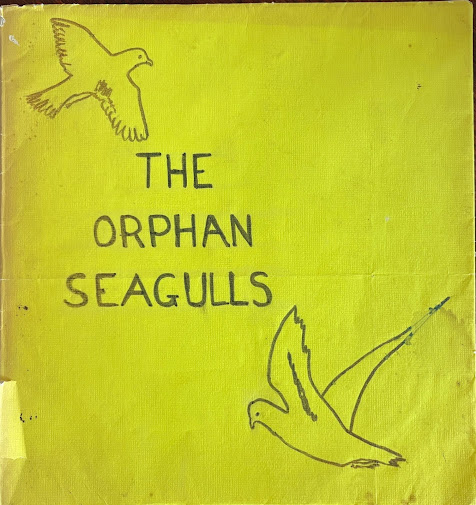What drives us as teachers?
Have you ever considered what drives us as teachers; and by extension,
what drives the schools in which we serve? Is our major concern to see
our students grow in character? Or are we fixated on growing knowledge, leading to success at school? Is
our major priority (and perhaps that of parents) simply to help students' succeed at school and hence, in life? What a shallow and
inadequate aspiration this is for education!
Every parent of course wants their children to succeed in life, to gain
employment, have families and
so on. But what of their character? Where does their formation as people
fit in? Is it a deep concern for us as teachers? And what role if any, do we play in partnership with parents in the formation of our students?
 When I wrote ‘Pedagogy and Education for Life: A Christian Reframing of Teaching, Learning, and Formation’, it was a distillation of my many years as a teacher and
research. My intent was to address questions that get to the heart of our purpose. My experience as a teacher
and researcher, as well as my faith, led me over almost three decades,
to
develop
a pedagogy that did not consist simply of knowledge of good practice and
appropriate curriculum content. It was based on my central assumption that
children learn in
relationship to others, and that these relationships and the practices
they
engage in day by day, are always embedded within shared communities,
consisting of people who hold many understandings, beliefs and
practices. The definition that shaped my book reflects my
personal life
journey as a
teacher. My conclusion was that.
When I wrote ‘Pedagogy and Education for Life: A Christian Reframing of Teaching, Learning, and Formation’, it was a distillation of my many years as a teacher and
research. My intent was to address questions that get to the heart of our purpose. My experience as a teacher
and researcher, as well as my faith, led me over almost three decades,
to
develop
a pedagogy that did not consist simply of knowledge of good practice and
appropriate curriculum content. It was based on my central assumption that
children learn in
relationship to others, and that these relationships and the practices
they
engage in day by day, are always embedded within shared communities,
consisting of people who hold many understandings, beliefs and
practices. The definition that shaped my book reflects my
personal life
journey as a
teacher. My conclusion was that. This lead me to develop a pedagogical framework with 20 components, organized around three key main strands within a biblical theology of person hood:“Education is the whole life of a community, and the experience of its members learning to live this life, from the standpoint of a specific goal”
- God made us as unique creatures
- God made us as creatures who learn
- God made us for communion
Do I identify that which is valuable in each child?
 |
| Above: Picasso's Girl with a mandolin |
All children are made in the image of God (Gen 2:15-25) and yet, all are
different. While we might recognize common behaviour, attitudes,
knowledge, habits (good and bad), abilities, emotional strengths or
weaknesses and so on, in our children, each child in his or her own way
is unique. This is of course is true, even for identical twins (monozygotic twins) who from the same fertilized egg. They too are genetically different (see this article) and different in character.
What does this simple plank in my pedagogy imply for pedagogy? Let me suggest five things.
a) First, that to teach the whole class as a single group is foolishness.
Sure, if we wish to teach specific skills and knowledge that we see as
vital (e.g. learning to count), it will mean that all will be taught the
same content. But if we are to engage students as learners, we will
need to find content that varies and relates to diverse interests and
adopts varied methods.
b) Second, we should expect our students to have different strengths and weaknesses.
Furthermore, we have a responsibility to build on strength and support
students to cope with their weaknesses, and perhaps overcome them. Conversely, we need to have a diverse curriculum that allows
students to demonstrate their varied capabilities. As a young difficult
child in primary school I was grateful to several teachers who
encouraged some of my key interests and tolerated areas of weakness.
c) Third, we should strive to develop curriculum content that opens up many and varied forms of learning.
This of course might reflect and relate to curriculum content (science,
art, writing, maths, drama, natural history, music etc), or perhaps other modes for learning (creative activities, oral and written expression,
divergent as well as convergent thinking etc).
d) Fourth, we should offer choice in content and curriculum activities, not simply prescription.
Enthusiasm can be more easily engendered by ensuring some freedom and
choice for students in relation to the activities that are experienced.
e) Fifth, we need to understand that we all have different abilities and capabilities, and ensure that we allow space for this in our curriculum and pedagogical practices.
Schools in Australia have closed for the long summer holidays. Teachers and students are in need of rest before commencing a new year. To be an effective teacher is to recognize that which is unique and valuable in each child. I ask that God might bestow on my readers rich blessings at this time and a chance to rest, spend time with family and celebrate the wonder of our Saviour's birth.
Enjoy your holiday break!

























